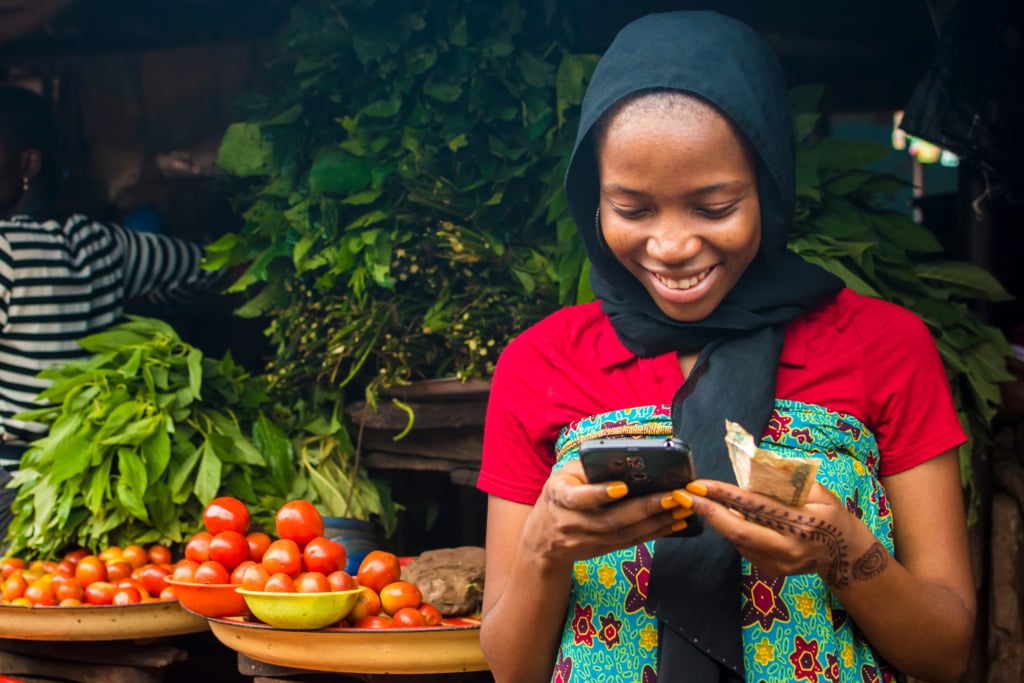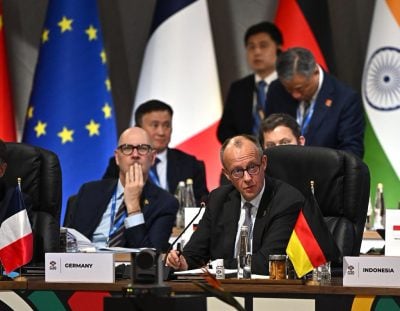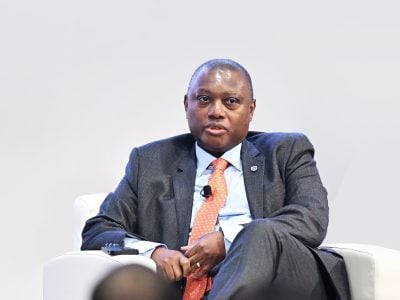The pandemic has put the emphasis on banks cutting costs and digitisation, with customers handling transactions on their phones and computers instead of queues at crowded bank branches. This puts the emphasis squarely on mobile money, fintech and digital currencies. Banks and fintech companies are jostling for position, sometimes working together, sometime poaching business, and competing intensely to recruit top IT staff.
A majority of Africa’s newly emerging “unicorns” – tech companies valued at over $1bn each – focus on payments. Nigeria’s Interswitch, which offers payment cards and digital payments and processes most of Nigeria’s electronic bank, government and corporate transactions, passed $1bn in 2019.
Its compatriot Flutterwave was valued at $1bn after closing funding of $170m in 2021. The firm offers partnerships with Visa and with Chinese e-commerce giant Alipay (part of Alibaba) for digital payments between China and Africa. Egypt’s Fawry offers financial services to customers and businesses through 225,000 locations and offers e-commerce with 29m monthly users and 3.1m transactions a day.
Other financial technology valuable firms with an African focus including OPay, Wave, Paga and Paystack.

Nigeria snatches Kenya’s crown
Investors from Silicon Valley to China have caught the African fintech bug. Lagos is attracting the lion’s share of investments after stealing Nairobi’s crown as leader of Africa’s tech revolution. Nigeria entices investors with the world’s seventh biggest population.
But there are many inefficient processes to improve and 95% of transactions are still in cash, entailing huge costs including the need for large bank branches to store the cash. Nearly 36% of adult Nigerians still do not have access to financial services.
Nigeria has attracted more than $1bn in venture capital investment in the last two years. In one week in November 2019 the inflow totalled $400m: Visa invested $200m in Interswitch, a group of investors led by Sequoia Capital China and SoftBank Ventures Asia invested $120m in OPay, and China’s Tassion invested $40m in PalmPay. This was a significant proportion of the total $1.2bn invested via venture capital tech in Africa in 2019.
In October 2020, US and Ireland-based payments giant Stripe acquired Nigerian payments company Paystack for a reported $200m in cash and stock, giving an exit for earlier investors such as Visa and China’s Tencent.
According to Mitchell Elegbe, Interswitch chief executive, the investment represents a virtuous circle. “Lagos . . . is characterised by youthful energy and entrepreneurial drive, as well as a generous availability of tech talent. The steady stream of successful ventures that have attracted decent amounts of VC funding continues to serve as a catalyst fuelling the rise of start-ups,” he told the Financial Times in September 2020.
Some African entrepreneurs and service providers avoid banking and currencies altogether, billing international clients in the cryptocurrency bitcoin.
Bitcoin may be volatile and hard to understand, but many African currencies also offer high transaction costs, unpredictable inflation and regulation, and currency shortages coupled to artificially high exchange rates which could devalue suddenly. Peer-to-peer cryptocurrency exchange Paxful says a third of its users are in Africa while Nigeria’s 1.5m users make up the biggest market. Another exchange, LocalBitcoins, says most of its customers are in Latin America, Africa and Russia.
“There’s a lot of commerce happening between China and Nigeria [and] importing of goods using cryptocurrency, because the foreign exchange policy has locked out the everyday entrepreneur who doesn’t have a massive amount of money to get into international trade,” Kim Grauer, director of research at Chainalysis, told the Financial Times on 6 September.
The costs of using cryptocurrency for remittances from abroad to Africa are 1%-3%, compared to a World Bank estimate of 9% or more using conventional remittance agencies to send $200. However, tech firms such as Wise, valued at $11bn when it listed in London in July, are bringing down the cost of digital transfers in conventional currencies.
Nigeria to launch digital currency
Banks are held back by tight regulations. In February 2020 the Central Bank of Nigeria (CBN) issued a directive that was widely interpreted as an outright ban on cryptocurrency trading. However, in March 2021, CBN deputy governor Adamu Lamtek clarified the bank’s position, saying that it was not discouraging individuals from trading but that banks were prohibited from facilitating cryptocurrency transactions.
Six months later, CBN joined other central banks worldwide enthused by the opportunities of central bank digital currency (CBDC), hinting at brave new ventures for the banks they regulate.
Speaking at the 14th Annual Banking and Finance Conference in Abuja on 14 September, CBN chief Emefiele announced the central bank was working to deploy a central bank digital currency – the e-Naira – to “help in attaining our goals of fostering greater inclusion using digital channels, supporting cross-border payments for businesses and firms as well as providing a reliable channel for remittances inflows into the country… When fully deployed, the e-Naira will ensure that Nigerians in remote areas can conduct financial activities using their digital as well as feature phone devices.”
China is ahead of other large economies. In April 2020 the People’s Bank of China launched the first electronic yuan (e-CNY) pilot programmes in four cities, after a six-year journey. The e-CNY is legal tender, so no entity in China can refuse it, and people receive it in salaries and can buy through large state-owned banks and the dominant retail payment platforms controlled by Tencent and Ant Group. Overall Africa has a long haul to catch up Asia in the digital currency race.
Some banks are looking at how CBDCs will operate together. The South African Reserve Bank, Reserve Bank of Australia, Bank Negara Malaysia and Monetary Authority of Singapore are joining forces to test the use of CBDCs for international settlements. The aim is to develop prototypes that will allow institutions in the four countries to use digital currencies and distributed ledger (blockchain) technology to make cheap, instant payments in different currencies.
Banks cooperate with telcos
Banks continue to cooperate with the telecommunications companies and providers of mobile money – some banks have set up telcos, and some phone companies have applied for banking licences in key markets such as Kenya. Financial inclusion in Kenya climbed from 27% to 83% over the decade to 2020, largely driven by telcos, including Safaricom’s M-Pesa service.
Nigeria had a promising start in 2011 when it launched an instant payments infrastructure and in 2014 created a centralised biometric banking identification called a Bank Verification Number, making it easier for both banks and fintechs to recruit customers and screen them for regulatory checks. Despite approving some licences to new payment service banks (PSB), CBN has kept telcos MTN (73m subscribers) and Airtel waiting for PSB licences for three years.
Banks and fintechs come together in open banking, where banks aim to offer better customer experiences by authorising third parties to access clients’ financial data. A bank offers application programming interfaces (APIs) and providers can build services such as banking apps with detailed analytics or tools to send money using a mobile phone. Open banking apps cover payments, lending, customer verification and onboarding.
Open banking is a hot topic for banking regulators. For example the Central Bank of Kenya has open infrastructure as a key objective of its 2021-25 strategy document. The focus is on security, risk-management, standards, consumer protection, data protection and privacy.
In South Africa Nedbank and Absa are investing in open banking and FNB and Standard Bank talk of “platform banking”. Kenyan banks such as Equity and Co-operative have launched APIs. Start-ups truID and Stitch in South Africa and Okra, Onepipe and Mono in Nigeria have all been funded to develop open banking infrastructure and are set to expand outside their domestic markets in coming months. Mergers and acquisitions are likely to increase the drive.
Want to continue reading? Subscribe today.
You've read all your free articles for this month! Subscribe now to enjoy full access to our content.
Digital Monthly
£8.00 / month
Receive full unlimited access to our articles, opinions, podcasts and more.
Digital Yearly
£70.00 / year
Our best value offer - save £26 and gain access to all of our digital content for an entire year!
 Sign in with Google
Sign in with Google 



